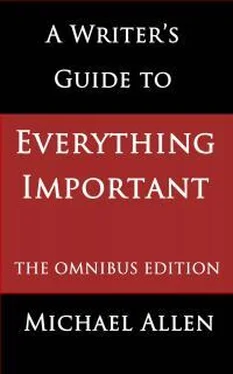This letter from the AAR generated immediate and angry responses from quite a number of experienced writers. What the agents should have been doing, many writers claimed, was looking after the interests of their clients, not speaking up for ‘the enemy’.
Dean Wesley Smith, for example, is a writer who has published 100 popular novels and well over 100 short stories. Smith said of the AAR letter: ‘Now agents have gone so far as to flat out represent publishers. Right out in public. No more hiding their true intent now.’ Result, said Smith: ‘Smart writers are running in droves from agents.’
The US lawyer C.E. Petit, who specialises in copyright law and authors’ issues, was brutal. The AAR, he said, ‘demonstrates its inability to understand law – despite its members’ obligation to look out for the legal interests of its clients…. The letter is not just nonsense. It reflects disdain for the AAR’s clients, to whom each AAR member owes a duty of loyalty.’
C.E. Petit also pointed out that it was ironic that the AAR’s predecessor ‘got smacked – hard, and deservedly – for antitrust violations, resulting eventually in its demise.’
Where does this leave agents? It certainly leaves them feeling less interested in aspiring authors than in years gone by. Instead they are scratching around for really commercial projects. Another example offered by Sterling Lord: he describes phoning an editor and beginning to pitch a book to her. But before he had got very far she interrupted him. ‘What’s the platform?’ she wanted to know.
In other words, is this author a TV soap actress? Or a world-class expert in his field (if it’s non-fiction). Can we guarantee an interview on Oprah? (Or whatever the new Oprah may be.) If not, thanks, but no thanks. If you’re a provincial nobody, you’re not even worth a long phone call. We’re busy people, here at Bootsie & Snudge.
Faced with these kind of problems, agents may well begin to wish they had the balls of Swifty Lazar. He, you may recall, used to put together big-platform books without actually consulting the star name until the deal was agreed in principle. Few agents of today can do that.
4.6 The nature of the agents’ responses
4.6.1 Desperate doings: rogues, villains, and improvisers
From the very beginning there have been agents with sticky fingers. Remember J.M. Barrie being parted from £18,000? But in recent years there have grown up a series of entrepreneurs who have abandoned all serious pretence of actually doing any serious agenting. Instead they make a living from suckers.
At this point I have to say, as tactfully as possible, that young and inexperienced writers are all too often their own worst enemies. The idea of signing up with an agent, any agent, offers them (they think) a wonderful opportunity to impress their family and friends.
Fortunately, a remedy is at hand.
For a good many years, the writers’ organisation known as Science Fiction and Fantasy Writers of America has operated a web site named Writer Beware. Go to this web site and read what it has to say about the multiplicity of crooked schemes and proposals which are floated temptingly under the noses of aspiring writers.
For your own health, it is absolutely essential to read all the Writer Beware pages on agents, and on publishers too, for that matter. I am not going to reinvent the wheel by listing all the various scams here. But just one paragraph from Writer Beware will act as a taster:
‘Dishonest agents prey on writers by charging fees, promoting their own paid services, engaging in kickback schemes, shilling for vanity publishers, and misrepresenting their knowledge and expertise. These agents’ income doesn’t derive from selling manuscripts to publishers, but from extracting money from clients.’
This paragraph comes from a site which, in my opinion, leans over backwards to be fair to those it criticises.
4.6.2 Writers’ contracts with agents
In the old days, at least in the UK, there was no written contract between an agent and his clients. I never exchanged letters or signed any other formal document binding me to an agent, and no one ever suggested that I should. It was all done informally. And when it came time to say goodbye, which it does, surprisingly frequently, it was again done in a polite and friendly manner, with good wishes expressed (sincerely) on both sides.
Which is not to say that the ‘informal’ agreement might not have been viewed as a contract in a court of law, but I never heard of a such a case going to court. For one thing, the money involved would frequently have been so small as to make it insane to run up vast lawyers’ bills.
Frequently, but not always. We will come to Harry Potter in a moment.
However… Times change, and the US is a far more litigious country than the UK. So you may not be too surprised to hear that, in today’s market, formal contracts between agents and writers are often the norm. It is now common practice for authors who do strike lucky (?) and find an agent who is willing to represent them, to be faced with signing on the dotted line.
And perhaps the most useful thing I can say at this point is, Hold! Pause! Do not sign! At least not yet. Not till you know exactly what you are signing. And perhaps not even then.
If you google around, as I have on your behalf, you can find reference to one big-name agency which has a five-page agreement for the intending author to sign.
Five pages. And on one of them it says that the agency is entitled to commissions earned by, paid to, or credited to the author (or, incidentally, any entity owned by or controlled by the author), ‘in perpetuity.’
Note that, this is not some fly-by-night elementary scam. This is a serious legal document drawn up and offered by highly paid lawyers representing a major firm of agents with major writers on their books. And they want your money – or some of it – in perpetuity.
Sounds like a long time to me.
The best advice I have seen offered by highly experienced writers, with decades of experience, is that before you sign any such agreement you should seek out a well qualified media lawyer (sometimes known as an intellectual-property, or IP, lawyer). And get him to check it over. Twice. I can only agree.
There are, reportedly, a few agents (probably small ones) who still operate on the handshake model. You may be able to find one. But the attraction of being linked to a household name (in publishing circles) is a strong one.
An experienced observer (and I like to think I am one such) can visualise so many potential complications in the author-agent relationship that mine eyes glaze over.
But one such complication is surely obvious to everyone. What happens at the parting of the ways?
The luckiest agent of all time was Christopher Little, in the UK. His office was one of those which received a submission from a person by the name of J.K. Rowling.
Rowling’s book was some sort of weirdo magic spells kids’ story, and it had already been rejected by numerous other agencies. However, according to a long-ago article in Publishing News (a UK weekly long since deceased), young Harry Porter caught the eye of Little’s secretary. (You know how it is on a slow day – you look around for anything to read.) She got interested in the ms and shoved it in front of her boss.
The rest is history. And indeed it is history now. Little took on Ms Rowling, with no great faith, and his lack of real interest was soon echoed by publishers. But one eccentric liked the book and published it. Small time.
It was the kids wot done it. About a year after HP first appeared, I was in a bookshop with my wife, looking for a birthday present for a nephew aged about 11. Down in the children’s section, two small boys of the right age group were flicking through the books on a table.
Читать дальше












